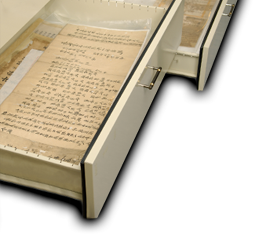|
Title Du Xiang-guo Papers (杜香國文書) IntroductionDu Xiang-guo (1893-1947) was a member of local gentry and industrialist in Dajia Town, Taichung County. The documents left behind him are acquired and preserved by the Institute of Taiwan History, Academia Sinica, and some of them are digitized for academic use. Du Xiang-guo’s father, Du Qing, was a local businessman. He cooperated with other local businessmen to establish the HorThai company and the Dajia hats and mats trading association to improve the development of the industry. In addition, he used to serve as the director of Dajia Credit Union and executive officer of Dadong Trust Corporation. Affected by his father, Du Xiang-guo began his business in economic and trade area, and served as manager of Taiwan Securities Co., Ltd, president of Dajia Chamber of commerce, general manager of Penglai Paper Co., Ltd., supervisory manager of Zhongnan Industrial Co., Ltd., and executive officer of Dajia Credit Union. Both the Du’s father and son were active in the business community in Taichung. The Du Xiang-guo Papers contains more than 500 items, including his correspondence, photos, collected documents, and manuscripts which were created during the period of Japanese rule. More than reflecting intercourse between local families during the period of Japanese rule, those documents, including correspondence with his friends, diaries during schooldays, and manuscripts about his literary works, help researcher understand cultural and educational situations and Du Xiang-guo’s contact with his friends. As for the correspondence on business matters and commercial information, revealing the situation of business development and civil disputes between businessmen, could be the first-hand material for the research into business development during that period. Source of Collection Producer: Du Xiang-guo Coverage Dates1908 - 1946 |
 |



